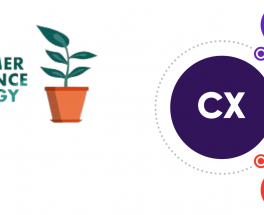Related Post







When you start walking on the path of eating healthy, you will encounter a lot of advice on how to do so. However, amidst the sea of information, beware of myths masquerading as truths. Here are Eight prevalent nutrition and food myths you’d do well to disregard:
#1 – Yogurt has Good Belly Bacteria:
Yogurt contains helpful bacteria that helps in sending reinforcements to the gut when needed. This bacterium is known as Lactobacillus Acidophilus. When looking for yogurt, look for ‘live active culture’ on their nutrition label. Unfortunately, today most packed yogurts have too much sugar and this encourages unhealthy bacteria in the gut. This causes unhealthy bacteria to feed on the sugar in the belly in the same way they do around the teeth.
#2 – Egg Yolks Raise Cholesterol:
While egg yolks do contain dietary cholesterol, studies show it doesn’t impact blood cholesterol levels. Research from Wake Forest University and The Saint Louis study both support that egg consumption isn’t linked to heart disease and may even reduce Calorie intake throughout the day when eaten for breakfast.
#3 – Sea Salt is Healthier than Table Salt
A widespread food myth suggests that table salt and sea salt differ significantly in sodium content. However, both contain roughly 2,300 milligrams of sodium per teaspoon. Despite claims about sea salt’s additional minerals like iron and magnesium, these are present in minimal quantities.
#4 – All Calories are the same:
One of the biggest food myths; we need to address is this – eating 300 calories of poultry is not the same as eating 300 calories of halwa. The body uses and stores these calories in a different way depending on the nutrients each food is encompassed of. Some carbohydrates will be harder to digest. Calories from sugar will make you obese and leave you feeling hungry even after consuming a considerable amount of food.
#5- Oranges are Source of Vitamin C:
Vitamin C does more than just boost immunity; it’s a crucial antioxidant with various roles. It enhances mood, strengthens skin by aiding collagen production, and improves metabolic efficiency. Since the body can’t produce or store it, consistent intake is vital. While oranges are popular for vitamin C, they’re not the best source. Foods like papaya, Brussels, sprouts, and strawberries offer higher vitamin C content. #6 You Can Never Eat Too Much Healthy Food:
#6 You Can Never Eat Too Much Healthy Food:
Nutritious or not, portion amount counts with every food. Buy smaller portion sizes for healthy foods if you have difficulty in controlling your hunger pangs. Healthy food, like the rest, should not be overeaten. 
#7 – Keto is the best Way to lose weight:
Ketogenic diets restrict carbohydrate levels to <10% and are used to treat epilepsy. Not only hard to follow, they are dangerous if not planned carefully and adequately supplemented. Balanced diets are a healthier way to lose weight.
#8 Frozen Foods Have Less Nutrients:
Fresh foods are always superior to frozen. In fact, frozen produce can be just as, or even more, nutritious than fresh. This is because frozen fruits and vegetables are harvested at their peak, retaining their highest nutrient levels through the freezing process. However, cooking methods also play a role in nutrient retention, as some vitamins are sensitive to heat or water.






Your Comment